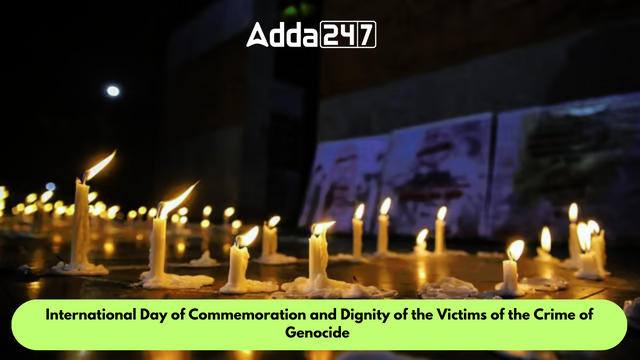Every 9 December holds profound significance as the Office of the Special Adviser on the Prevention of Genocide marks the adoption of the Genocide Convention, a pivotal global commitment made at the inception of the United Nations. This day, also recognized as the International Day of Commemoration and Dignity of the Victims of the Crime of Genocide, highlights the importance of preventing this heinous crime. As we approach the 75th anniversary of the Genocide Convention, it remains a beacon in the fight against genocide, emphasizing international cooperation and a commitment to “never again.”
75th Anniversary Theme
This year’s commemorative event centers on the theme “A Living Force in World Society: The Legacy of the 1948 Convention on the Prevention and Punishment of the Crime of Genocide.” It aims to showcase the Convention’s achievements, its lasting legacy, and the challenges that persist in its effective implementation. The event will serve as a reflection on the tireless efforts that led to the Convention’s drafting and adoption.
Genocide Convention at 75: A Timeless Relevance:
This year marks the 75th anniversary of the Genocide Convention, a milestone in international law that codified the crime of genocide. Its adoption in 1948, preceding the Universal Declaration of Human Rights, underscores the global commitment to combating genocide. The Convention’s preamble recognizes the historical losses inflicted by genocide and calls for international cooperation to free humanity from this odious scourge. With 153 states having ratified the Convention, achieving universal ratification and ensuring full implementation are crucial for effective genocide prevention.
Dual Obligation: Punishment and Prevention:
The Genocide Convention goes beyond merely punishing the crime of genocide; it places a crucial emphasis on preventing it. Over the past 75 years, it has played a pivotal role in developing international criminal law, holding perpetrators accountable, and amplifying the voices of genocide victims. Its enduring legacy underscores the intertwined obligations of punishment and prevention, vital in our collective pursuit of justice.
Genocide Today: A Persistent Threat:
Despite the Convention’s existence, genocide remains a threat globally. Populations worldwide are still at risk, emphasizing the continued need to invest in prevention. The event will shed light on the work of champions of prevention, acknowledging their relentless efforts to shield populations from the scourge of genocide.
Genocide Convention: Defining the Crime
The Genocide Convention, in Article 2, defines genocide as acts committed with the intent to destroy, in whole or in part, a national, ethnic, racial, or religious group. These acts include killing members of the group, causing serious bodily or mental harm, deliberately inflicting conditions of life to bring about physical destruction, imposing measures to prevent births, and forcibly transferring children. It establishes genocide as a crime under international law, obligating parties to “prevent and to punish.”
Prevention of Genocide: Addressing Root Causes
Understanding the root causes of genocide is critical for prevention. Genocidal conflicts are often identity-based and arise from disparities related to power, wealth, services, resources, employment, and fundamental rights. Discrimination, hate speech, and violations of human rights contribute to these conflicts. Prevention requires identifying and eradicating discriminatory practices that may lead to genocidal violence.
Special Advisers on Genocide Prevention and Responsibility to Protect
The Special Advisers on the Prevention of Genocide and on the Responsibility to Protect collaborate to protect populations from genocide, war crimes, ethnic cleansing, and crimes against humanity. They collect information on situations with a risk of atrocity crimes, based on the Framework of Analysis for Atrocity Crimes. The Special Advisers work diligently, often behind the scenes, to reduce the risk of atrocities by issuing public statements and briefing the Security Council when necessary.
Important Questions Related to Exams
1. What is the significance of December 9 in relation to genocide?
Sol: December 9 marks the adoption of the Genocide Convention, a vital global commitment by the United Nations, and is observed as the International Day of Commemoration and Dignity of the Victims of the Crime of Genocide.
2. What is the theme for the 75th anniversary of the Genocide Convention in 2023?
Sol: The theme is “A Living Force in World Society: The Legacy of the 1948 Convention on the Prevention and Punishment of the Crime of Genocide.”
3. What is the primary goal of the commemorative event for the Genocide Convention’s 75th anniversary?
Sol: The event aims to showcase the Convention’s achievements, reflect on its lasting legacy, and address the challenges in its effective implementation.



 Kargil Vijay Diwas 2024, Remembering Ind...
Kargil Vijay Diwas 2024, Remembering Ind...
 Important Days in July 2024, Check Natio...
Important Days in July 2024, Check Natio...
 National Brain Research Centre Celebrate...
National Brain Research Centre Celebrate...
